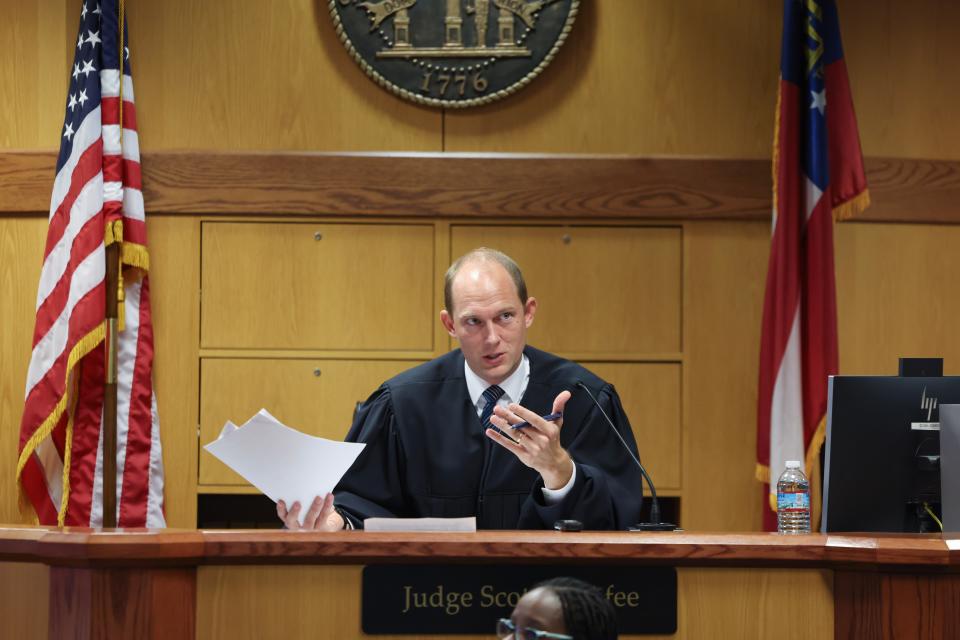Trump co-defendants lose bids to block upcoming Georgia election interference trial
- Oops!Something went wrong.Please try again later.
- Oops!Something went wrong.Please try again later.
Two co-defendants of former President Donald Trump remain on track to begin trial Monday after a judge rejected a series of arguments for tossing out the Georgia election interference case against them.
Sidney Powell and Kenneth Chesebro, who are among the 19 individuals charged in the case, said the charges they face should be nixed on multiple grounds, including the fact that prosecutors have targeted an overly-broad range of conduct. The sweeping indictment states that various alleged acts by different defendants -- from urging legislators to reject lawful electoral votes to stealing voting equipment software -- were part of a criminal conspiracy to unlawfully change the outcome of the 2020 presidential election.
Fulton County Superior Court Judge Scott McAfee said in a Wednesday order that Georgia prosecutors are allowed to bring criminal prosecutions related to elections, even though the federal Electoral Count Act governs Congress’ process for counting electoral votes. On Tuesday, McAfee also rejected several other pre-trial arguments from Powell and Chesebro.
“The prevalence of Georgia law does not support the contention that federal law was intended to govern conduct related to state electors exclusively,” McAfee wrote in the Wednesday order.
The ruling provides insight into how McAfee may deal with any similar legal strategies Trump employs when the time nears for his trial in Georgia, which has not yet been scheduled. Powell and Chesebro are being tried earlier because they demanded a speedy trial, and McAfee rejected prosecutors' request to try the other defendants at the same time.

Both Powell and Chesebro challenged the one charge prosecutors have brought against not only them, but also every other defendant in the case: that they violated Georgia's Racketeer Influenced and Corrupt Organizations (RICO) Act. The law targets organized criminal enterprises, allowing prosecutors to tie multiple crimes and defendants together.
As part of the alleged conspiracy, prosecutors have said that Powell organized an unlawful breach of election equipment in Coffee County, Georgia. Chesebro outlined strategies to disrupt or delay Congress' Jan. 6 count of electoral votes, according to the indictment.
In a hearing last week, Powell attorney Brian Rafferty said "literally thousands, if not millions" of Americans engaged in the kinds of acts that are included in the alleged RICO conspiracy, such as petitioning state legislatures or petitioning party electors. That shows prosecutors are applying the statute more broadly than was originally intended, he said. The statute should be limited to behavior connected to seeking money or causing injury, he urged.
However, McAfee pushed back in his Tuesday ruling, pointing to a directive within the statute itself stating that it should be “liberally construed.”

McAfee also rejected a series of other challenges Powell and Chesebro brought to separate conspiracy charges they each face, ruling that many of those challenges deal with fact-based issues that are more appropriate to address at trial.
So far just one defendant, Scott Hall, has taken a plea deal. Hall faces five years of probation after pleading guilty to conspiring to intentionally interfere with the performance of election duties and agreeing to testify in future proceedings. The state alleged in its indictment that Hall unlawfully tampered with electronic ballot markers and tabulating machines in Georgia.
This article originally appeared on USA TODAY: Trump co-defendants set for Georgia trial Monday after losing bids

